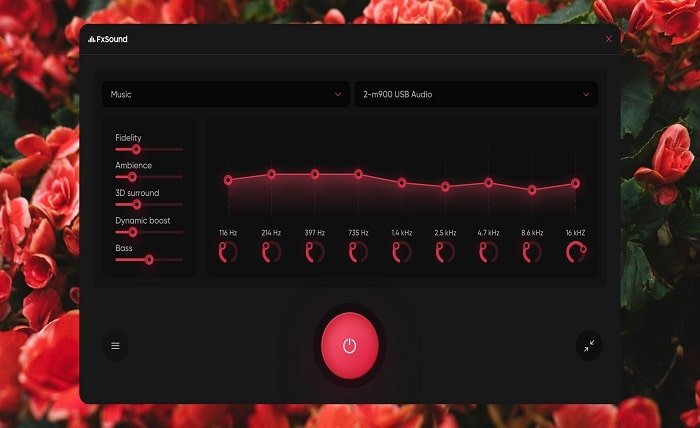Sound Enhancer: Elevating Your Audio Experience to New Heights

In a world dominated by digital content, high-quality sound has become a critical part of our everyday experience, whether you’re listening to music, watching movies, or playing video games. A sound enhancer is a tool designed to improve audio quality, ensuring that you can enjoy rich, immersive sound across devices. In this blog post, we’ll dive into what sound enhancers are, their various types, how they work, and why they are a must-have in the modern era.
What is a Sound Enhancer?
A sound enhancer is a device or software designed to modify and improve the audio signal, resulting in better sound quality. These enhancers can adjust frequencies, eliminate background noise, and boost sound clarity, creating a more immersive experience for the listener. Sound enhancers are commonly used with home theaters, music systems, gaming setups, and even for professional audio production.
Whether you are an audiophile looking to enhance your music collection, a gamer wanting crisp sound effects, or someone who enjoys watching movies with clear dialogues and dynamic soundtracks, a sound enhancer can make all the difference.
How Sound Enhancers Work
Sound enhancers work by processing audio signals and applying various modifications to enhance their quality. They typically function in the following ways:
- Equalization (EQ): Adjusting different frequency bands (bass, mid, treble) to make the audio more balanced.
- Noise Reduction: Reducing or eliminating unwanted background noise to provide clearer sound.
- Dynamic Range Compression: Reducing the volume of loud sounds and boosting the quieter ones, ensuring a more consistent listening experience.
- 3D Surround Sound Processing: Simulating a three-dimensional audio effect for a more immersive soundstage, particularly in gaming or movie-watching scenarios.
- Bass Boost: Enhancing low-frequency sounds, creating deeper bass for a richer listening experience.
These processes work together to transform raw, unprocessed audio into a cleaner, more pleasant listening experience, tailored to your personal preferences.
Types of Sound Enhancers
There are two main categories of sound enhancers: hardware-based and software-based. Each type offers distinct advantages and can be used depending on your needs.
Hardware Sound Enhancers:
Hardware sound enhancers are physical devices that connect to your audio source (such as a stereo system, computer, or gaming console). Some common types include:
- External DACs (Digital-to-Analog Converters): These devices take the digital audio signal and convert it into an analog signal, often improving the sound quality.
- Audio Amplifiers: These devices amplify the audio signal, allowing for louder, clearer sound.
- Equalizers: Hardware-based equalizers allow for manual adjustment of frequency bands, giving you control over how the sound is shaped.
Software Sound Enhancers:
Software-based sound enhancers are applications or tools that run on your computer, smartphone, or other digital devices. These enhancers offer more flexibility and customization than hardware-based solutions. Some popular software enhancers include:
- Audio Equalizers (Software): Many media players offer built-in equalization features that allow users to customize their sound experience.
- Noise-Cancelling Applications: These software solutions reduce background noise and provide cleaner sound during calls or recordings.
- Surround Sound Emulators: These programs mimic surround sound effects, enhancing audio immersion without the need for multiple speakers.
The Benefits of Using Sound Enhancers
Whether you’re using a hardware device or software application, sound enhancers provide a range of benefits:
a. Improved Audio Clarity:
A sound enhancer eliminates distortion, enhances high and low frequencies, and ensures better audio clarity, making it easier to enjoy music or movies without straining to hear.
b. Immersive Experience:
With advanced technologies such as 3D audio and surround sound simulation, sound enhancers can create a more immersive listening experience. This is particularly beneficial for gaming and watching films.
c. Customization:
Whether you prefer deep bass, balanced mid-tones, or sharp treble, sound enhancers allow you to adjust settings according to your personal preferences, offering a tailored sound experience.
d. Enhanced Speech Clarity:
For people who struggle with hearing conversations or dialogues in movies, sound enhancers provide tools to enhance voice clarity, ensuring you don’t miss a word.
e. Portable Solutions:
Many software-based sound enhancers are portable and can be installed on laptops, smartphones, or tablets, offering a convenient way to improve audio quality on the go.
How to Choose the Right Sound Enhancer
Choosing the right sound enhancer largely depends on your needs and the type of device you intend to use it with. Here are some key factors to consider:
a. Audio Source:
Determine the type of audio source you’re using. If you listen to music or watch movies on your computer, software-based solutions may be ideal. For home theater systems, hardware-based devices such as DACs or amplifiers may offer the best results.
b. Budget:
Sound enhancers can range from free apps to high-end hardware costing several hundred dollars. Set a budget before exploring options.
c. Customization Features:
Look for sound enhancers that allow you to customize your sound experience through equalizers, bass boosts, or noise-canceling features.
d. Ease of Use:
Some sound enhancers come with complex interfaces, while others are simple to set up and use. Choose one that fits your technical skill level.
e. Compatibility:
Ensure that the sound enhancer you choose is compatible with your audio source, whether it’s a gaming console, smartphone, or stereo system.
Common Applications of Sound Enhancers
Sound enhancers have a broad range of applications, enhancing the listening experience across various activities and devices. Below are some common uses:
a. Music Listening:
Audiophiles and casual listeners alike can enjoy enhanced audio clarity, better bass, and customized EQ settings to match their musical tastes.
b. Gaming:
For gamers, sound enhancers can make a huge difference, particularly in competitive gaming where sound cues are essential. Virtual surround sound and noise-canceling features can give players a competitive edge.
c. Movies and TV:
Sound enhancers can significantly boost the clarity of dialogues and improve the overall cinematic experience. Surround sound features can make home theaters feel like real cinemas.
d. Calls and Online Meetings:
Noise-canceling and voice-enhancement features found in sound enhancer software make virtual meetings more efficient, ensuring that everyone can hear and be heard clearly.
e. Professional Audio Production:
For professionals in the music industry, sound enhancers provide the necessary tools to fine-tune audio recordings, ensuring perfect balance, tone, and sound quality.
Looking for a reliable Hindi font generator to create beautiful and stylish Hindi text? Our easy-to-use Hindi font generator helps you convert your words into various attractive Hindi fonts instantly. Whether you want to design social media posts, invitations, or creative content, this tool offers a wide range of fonts to choose from. No installation or technical skills needed! Just type your text, select your favorite font style, and generate unique Hindi fonts in seconds. Perfect for students, designers, and content creators looking to add a special touch to their Hindi writing. Try the best Hindi font generator now!
Sound Enhancer Software vs. Hardware: Which One is Right for You?
Choosing between software and hardware sound enhancers depends on the purpose, budget, and audio setup.
a. Software-Based Enhancers:
- Suitable for casual users.
- Often free or low-cost.
- Easy to install and use on most devices.
- Provide good customization options but may be limited in terms of overall sound improvement compared to hardware solutions.
b. Hardware-Based Enhancers:
- Ideal for audiophiles, professionals, or anyone who demands high-fidelity audio.
- More expensive than software-based options.
- Offer superior sound quality and a wider range of features.
- Require physical setup and connection to audio devices.
Ultimately, the decision comes down to how serious you are about sound quality and your specific needs.
Conclusion
A sound enhancer is a powerful tool that can revolutionize your audio experience, whether you’re listening to music, gaming, or watching movies. From software solutions to high-end hardware, there’s an option for everyone. With the right sound enhancer, you can tailor your audio to meet your exact preferences, ensuring that you enjoy crisp, immersive, and high-quality sound every time.
FAQs
1. What is the difference between a sound enhancer and an equalizer? A sound enhancer is a broader tool that can improve sound quality by using various techniques such as noise reduction, 3D sound, and dynamic range compression. An equalizer, on the other hand, specifically adjusts different frequency bands (bass, mid, treble) to balance the sound.
2. Can I use a sound enhancer on my smartphone? Yes, there are many sound enhancer apps available for smartphones, including those that adjust the equalizer settings, reduce background noise, and improve bass. Popular options include Wavelet and Boom 3D.
3. Are hardware sound enhancers better than software? Hardware sound enhancers typically offer superior audio quality due to advanced features like DACs and amplifiers, but they are more expensive. Software enhancers are easier to use and more affordable, but may not offer the same level of fidelity.
4. Do sound enhancers work for gaming? Yes, sound enhancers can significantly improve the gaming experience by providing clearer sound, virtual surround effects, and noise cancellation, which can be crucial in competitive gaming.
5. Is a sound enhancer necessary for watching movies? While not necessary, a sound enhancer can greatly improve your movie-watching experience by boosting dialogue clarity, enhancing sound effects, and simulating surround sound. This can make home viewing feel more like





